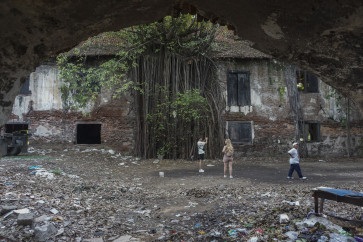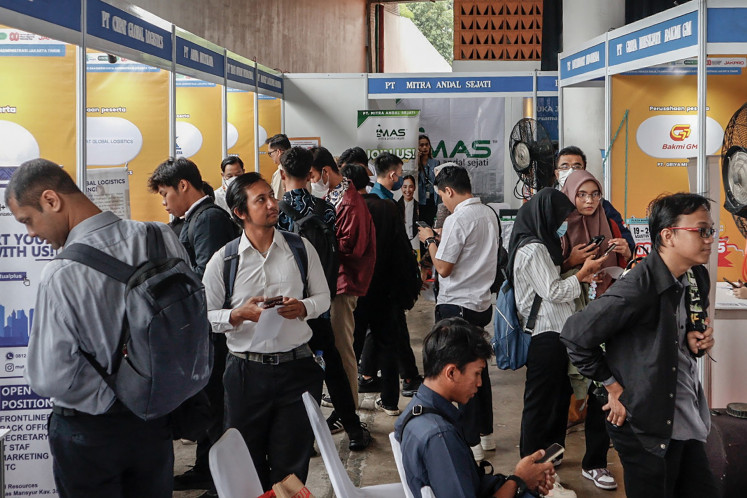Popular Reads
Top Results
Can't find what you're looking for?
View all search resultsPopular Reads
Top Results
Can't find what you're looking for?
View all search resultsGovernment improves access to mortgages for low-income families
As part of its campaign to improve the access of low-income people to housing mortgages, and to boost its one-million houses program, the government inked a deal on Wednesday with Bank Negara Indonesia (BNI) that will allow the state lender to provide the interest gap subsidy (SSB) to low income families
Change text size
Gift Premium Articles
to Anyone
A
s part of its campaign to improve the access of low-income people to housing mortgages, and to boost its one-million houses program, the government inked a deal on Wednesday with Bank Negara Indonesia (BNI) that will allow the state lender to provide the interest gap subsidy (SSB) to low income families.
Under the scheme the government expects to help fund the construction of 15,000 houses.
The scheme is an additional government-backed mortgage program provided by BNI following the housing loan liquidity facility (FLPP), which was made available five years ago.
Public Works and Public Housing Ministry’s director general for housing finance Lana Winayanti said BNI would add to the list of eight banks and 22 regional development banks working with the ministry to provide subsidized mortgages for low-income families.
“The addition will improve the public’s access to mortgages for house financing,” Lana said.
She said the government aimed to build 40,000 new houses through the FLPP program and 239,000 new houses through the SSB program.
Through FLPP, families with a maximum monthly income of Rp 4 million (US$299) can receive a fixed interest rate of 5 percent for 20 years.
BNI moved to add the SSB mortgage option following the government’s decision to slash the state budget allocation for FLPP from Rp 9.7 trillion to Rp 3.1 trillion this year. The state budget also reduced the housing finance target from 120,000 new houses to 40,000.
Earlier, state lender Bank Tabungan Negara (BTN), whose business relies heavily on mortgages, cut back on its FLPP mortgage program to focus on the SSB.
Lana acknowledged that banks now preferred spending through the SSB scheme.
“For FLPP, the disbursement [for the banks] has to wait until the revised state budget is finalized, so until August, they cannot get money [from the government]. Meanwhile SSB disbursement is much faster,” she said.
The ministry’s data shows that so far, the SSB funding has been channeled to build around 52,000 houses, while FLPP has been channeled to build 8,014 houses.
The government has pledged to expedite its housing development project given the country now has a housing backlog of at least 11.4 million units.
The government expects to reduce the housing ownership backlog to 6.8 million houses by 2019.
Under the 1 million houses program, the Public Works and Public Housing Ministry in collaboration with private developers, local governments and other agencies is expected to build 700,000 low-income houses annually, while private developers are also expected to build 300,000 commercial houses annually.
The government also issued an economic stimulus package last year, specifically to address housing problems, by scrapping seven permits and combining several others. The number of permits required for low-income housing construction is expected to be reduced from 33 to 11.
However, the government has continuously failed to reach the one million houses development target, and only managed to build 800,000 units last year. This year, the figure is expected to rise to 900,000 after the government managed to build 449,000 homes in the first half of the year.
BNI consumer banking director Anggoro Eko Cahyo said the bank aimed to allocate Rp 170 billion for the FLPP scheme this year.
“It [housing mortgages] is BTN’s domain but we also need to take a slice as well,” he said.










